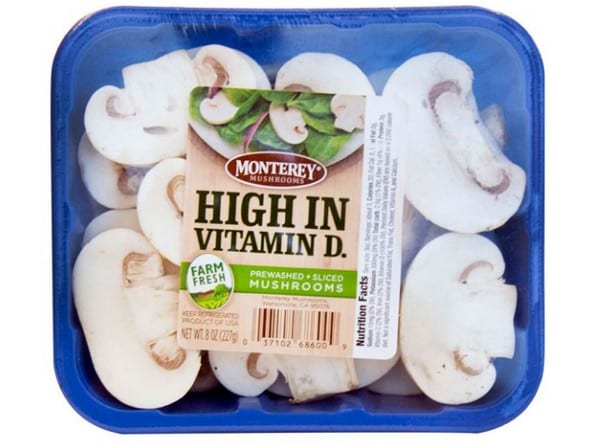How you live is a powerful predictor of how long and how functional you’ll be well into your 80’s, 90’s and beyond. There are several simple ways to improve your health and actually counteract conditions common with aging by simply paying attention to what you eat.
Here are some of the most common conditions associated with aging:
HEARING LOSS
Longevity tip #1: Eat more high-quality plant-based foods.
- Adequate blood flow in your arteries is essential for proper ear function.
- Foods that are unhealthy for your heart, such as animal-based foods, refined grains, added sugars, and unhealthy fats, lead to plaque build-up in the arteries and are unhealthy for your hearing.
- Improve your cholesterol levels and lower your blood pressure to enhance blood flow. Studies show a 30% lower risk of hearing loss in 81,000 women who followed a heart-healthy diet.
Hearing Loss and Dementia
- The brain shrinks 5% per decade after age 40, and the rate of decline increases after age 70, increasing risk for dementia.
When hearing is impaired, parts of the temporal lobe in the brain atrophy (shrink) from not being stimulated. Degeneration of the temporal lobe structures is a biomarker for early-onset Alzheimer’s disease.
*Structures in the temporal lobe are important for memory, language, and hearing, along with many other functions.
Per a 12-year study by John Hopkins researchers, hearing loss was associated with dementia:
- Mild hearing loss doubled the risk for developing dementia.
- Moderate hearing loss tripled the risk.
- Severe hearing impairment increased the risk by five times.
POOR BALANCE
Longevity tip #2: Eat enough healthy protein and vitamin C.
- One common cause of poor balance and the loss of functional independence is sarcopenia (age-related muscle loss).
- Muscles cannot stay strong without an adequate intake of protein.
Without strong muscles to support your joints, you can’t balance and hold your body erect, resulting in a greater risk of suffering from a serious and even life-threatening fall.
Eat Enough Protein and Vitamin C
- On average, older adults should aim for at least 0.6 gram of protein per pound of “ideal” body weight per day. For example, a person with an ideal body weight of 150 pounds needs about 90 grams of protein.
- Many older adults skip protein in the morning (e.g., a piece of toast and a cup of coffee), but it’s important to deliver protein to your muscles throughout the day. Include protein at every meal.
Researchers found that older men and women who consumed adequate vitamin C had an average of 1.6% to 3.4% more muscle mass.
A cup of strawberries, 1/2 cup red bell pepper, or 1/4 cup cantaloupe would provide the recommended daily amount of vitamin C.
JOINT PAIN
Longevity tip #3: Eat more fiber. Fiber is a carbohydrate found in plant foods, such as beans, fruit, grains, nuts, and vegetables.
- Degenerative arthritis (osteoarthritis) is a leading cause of disability in the U.S.
- Researchers found that adults who ate 20 grams of fiber per day had a 30% lower risk of knee osteoarthritis than those who ate 8 grams, whereas those who ate 25 grams of fiber per day had a 61% lower risk than those who consumed 14 grams.

How to Fill Your Plate at Each Meal You’ll be sure to consume adequate fiber if you proportion your plate like this:
- 1/2 your plate with non-starchy vegetables
- 1/4 with starchy vegetables or whole grains
- 1/4 with plant-based protein (e.g., tofu, lentils, nuts on omega-rich fish 1-2 times per week)
DEPRESSION
Longevity tip #4: Replace refined carbs with whole grains, and increase vitamin D intake. When depressed, people often turn to their “comfort foods” (refined carbs, sugar, and fat) that may soothe their emotions for a few minutes, but actually cause moods to crash.
Depression is not a normal part of aging, although the death of friends, family members, pets, loss of a spouse or partner, and social isolation are common causes of depression in older adults.
Depression and Dementia
- Depression is more than feeling down or sad, studies show it may also physically change your brain — that is, parts of the brain shrink in people who suffer from depression, which increase risk of dementia.
- Those who have regular or ongoing depression with serious symptoms seem to have greater brain volume loss.
- Studies show depression affects areas of the brain that result in:
- Memory loss
- Trouble thinking clearly
- Guilt or hopelessness
- Lack of motivation
- Sleep or appetite problems
- Anxiety
 Vitamin D
Vitamin D
People at greatest risk for vitamin D deficiency include the elderly, adolescents, obese individuals, and those with chronic conditions (e.g., diabetes). These are the same groups that report risk for depression.
- A study found that those with vitamin D deficiency were more likely to develop depression. Consume more fatty fish (salmon, mackerel, anchovies, sardines, herring), mushrooms*, fortified milk and breakfast cereals.
*Mushrooms are like humans and can produce vitamin D when exposed to UV light. Eat mushrooms treated with UV light because mushrooms grown in the dark contain very little D.
Karen’s Fit Tip: A lifestyle centered around heart-healthy, fiber-rich foods is beneficial to preventing chronic age-related conditions as well as resisting the negative effects of aging.
Focus on eating whole foods (minimally processed) and watching your plate “proportions” to keep meals healthy and balanced.





